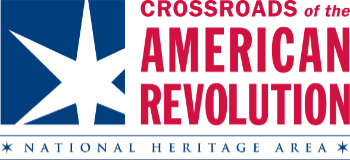Biography People
Nathaniel Scudder Full Biography
I was born May 10, 1733 into a prominent Presbyterian family that immigrated to central New Jersey from Long Island in the early-1700s. After graduating in 1751 from the College of New Jersey at Newark I moved to Freehold to set up my practice as a physician. The following year I married Isabella Anderson on March 23, 1752. My practice grew and I became one of Monmouth County’s leading citizens, co-founding a fund for the widows of deceased clergy and establishing a school at Freehold, the first in the county. In 1774, I became a member of the Freehold Township Committee of Observation, charged with enforcing the boycott of British goods. I was a delegate to New Jersey’s first Provincial Convention, which endorsed establishing a Continental Congress. In 1775, I participated in reorganizing the Monmouth County militia and helped secure the crew and cargo of a British vessel that beached off the Monmouth coast.
When the British invasion of New York began with a large British fleet anchoring off Sandy Hook on June 30, 1776, I rode across central New Jersey to deliver the news to the Provincial Congress. Two months later, I was elected to the upper house of the new state government, the Privy Council, and served on the Council of Safety, which investigated and punished Loyalists. I also campaigned against Loyalists and “the disaffected” inside Monmouth County, but was not able prevent a large scale Loyalist insurgency in December 1776. As lieutenant colonel, I took command of the county militia after the commanding officer, Colonel George Taylor, turned Loyalist. In January, I helped a regiment of Pennsylvania Continentals put down the Loyalist uprising. However, my men suffered a terrible defeat a few weeks later at the so-called Battle of the Navesink, when they were surprised at night by a detachment of British regulars, resulting in 25 deaths and 73 captures.
I worked with my friend, Colonel David Forman, to reorganize the Monmouth County militia and local government in early 1777. Although Forman and some other Revolutionary leaders were accused of misdeeds, there is no evidence to suggest that I was enriched by my activities. In fact, I was robbed by Loyalists once, and used my own funds and stores for my men. In November, I was selected by the New Jersey Legislature to serve in the Continental Congress. In Congress, I worked on improving the system to supply our army with food and finding ways to encourage men to enlist in it.
In June 1778, I left Congress and returned home in advance of the British marching across Monmouth County. The Battle of Monmouth was fought on June 28 only a few miles from my home. I spent the day of the battle behind British lines, after tending to a medical emergency the evening before, and observed the movements of the armies from a private home. I was a strong supporter of the Articles of Confederation, despite their weaknesses, and two weeks after the battle wrote to John Hart from my home in Freehold outlining my reasons for supporting them. Our alliance with France necessitated confirming our confederation and I believed “that no Plan can or will ever be adopted more equal, or less generally injurious to the confederating States than the present.” I declined to serve a third term in Congress, citing strains on my family and diminishing personal fortune.
In 1779 and 1780, Loyalist raids punished Monmouth County supporters of the Revolution, and I helped organize the Association for Retaliation, a vigilante group that promised eye-for-an-eye retaliation against Loyalist partisans and their kin. When the Association’s extra-legal actions aroused concerns from the New Jersey Legislature and Continental Congress, I argued strongly and publicly in favor of the group and the policy of retaliation.
In a fall 1780 election, marred by charges that armed Retaliators had driven off potential voters, I was elected to the New Jersey Legislature where I lobbied the Continental Congress to better supply the militia in areas impacted by raider warfare, and personally delivered supplies to my home county. I was killed in the midst of the war on October 17, 1781, shortly after being re-elected to the Legislature. A group of Loyalists from Sandy Hook landed at Shrewsbury, marched to Colt’s Neck, and took some prisoners. We got the alarm about five in the morning and formed a party to pursue them. We rode to Black Point, where they had landed, and attacked them as they boarded their boat to escape. During the skirmish I was struck in the head by a musket ball and killed instantly. My funeral and burial at the Tennant Church graveyard in Manalapan was widely attended, and I was passionately eulogized in the New Jersey Gazette, the state’s leading newspaper. I was the only person to serve in the Continental Congress to be killed in combat.
FURTHER SOURCES
For a biographical sketch see: Stryker, William S., “Nathaniel Scudder.”The Pennsylvania Magazine of History and Biography, vol 3, no 2, 1879, 189-191.
For Nathaniel Scudder’s letter to John Hart, July 13, 1778 recommending ratification of the Articles of Confederation, see: Burnett, Letters to Members of Congress, vol 3, p326-328, or, Gerlach, Larry R., ed. New Jersey in the American Revolution, 1763-1783: A Documentary History. Trenton: New Jersey Historical Commission, 1975, 412-414.
For the notice of his death and eulogy, see: New-Jersey Gazette, October 24, 1781, page 3 and New Jersey Journal, October 31, 1781.
